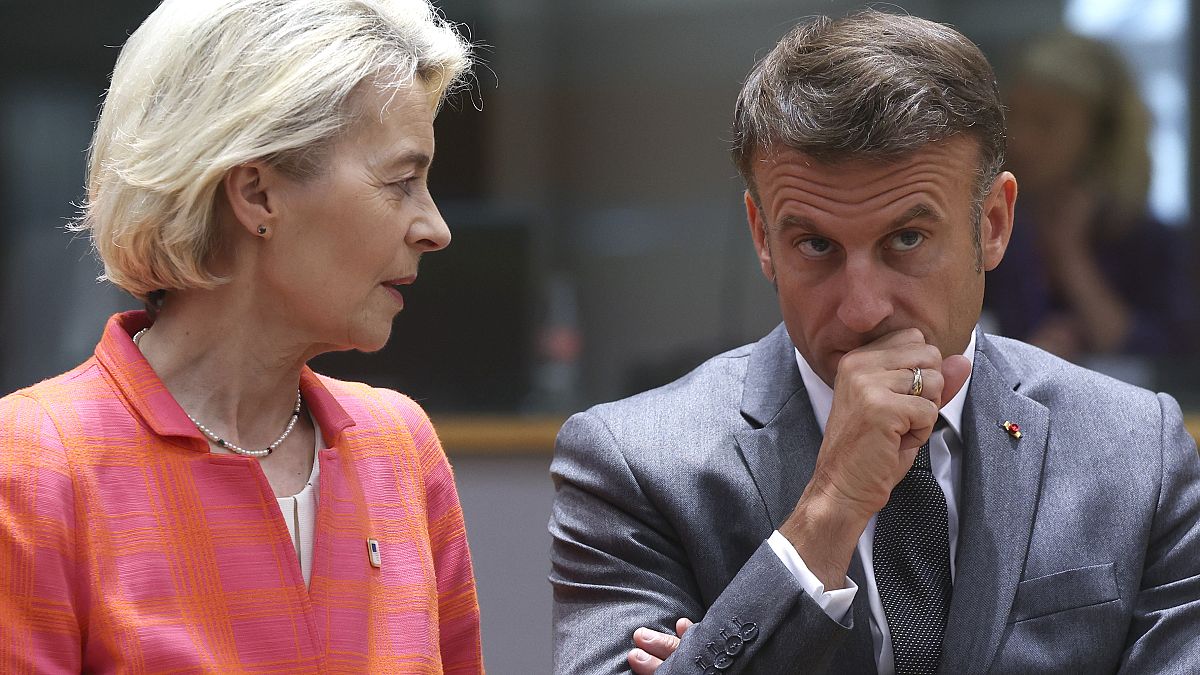EU formally opens deficit proceedings against eight member states
The EU’s fiscal rules, introduced alongside the common euro currency in the 1990s, say the imbalance in national fiscal positions shouldn’t be over 3% of GDP, with overall debt kept under 60%. . .
Those rules have long proved political dynamite, as northern member states such as Germany and the Netherlands are reluctant to pay for what they see as reckless spending in Greece or Italy. The move occurs as both France and Belgium, in both of which public debt exceeds 100% of GDP, attempt to form governments from splintered coalitions.
- Two weeks ago, France’s Court of Auditors said the state of public finances was “alarming”, and finance minister Bruno Le Maire, part of Gabriel Attal’s caretaker government, may step down imminently given the drubbing taken in a June legislative election.
- It also represents a new front in the war between Brussels and Giorgia Meloni’s right-wing government.
On Wednesday, the Commission berated press freedom in Italy after Meloni filed legal cases against individual reporters who criticised or mocked her.
Post-pandemic rules
After much haggling, member states earlier this year agreed on a more flexible set of budget constraints to apply as of this year, allowing more wiggle room for spending on climate change or defence.
That late agreement means timelines for settling budget policy have been truncated this year, perhaps explaining why the EU adopted its warning on the afternoon of the day when many officials depart for summer holidays.
Ministers are expected to endorse formal recommendations for profligate countries to bring deficits back down in December.
Brussels officials have already been in touch with finance ministries in affected countries to recommend trajectories for correcting the imbalance, implying politically painful tax rises or spending cuts.
But it also needs to fund the green transition and increase defense spending. And it can’t abandon the fiscal safeguards built into the bloc’s founding treaties that limit government borrowing and aim to cap member states’ total debt at 60% of GDP.. And it can’t abandon the fiscal safeguards built into the bloc’s founding treaties that limit government borrowing and aim to cap member states’ total debt at 60% of GDP
Regional Reports and Blogs
April 2024
A soft landing for Europe’s economies is within reach. Securing the baseline of growth with price stability will require careful monetary policy calibration. Faster fiscal consolidation would ensure buffers are adequate to tackle future shocks, while structural fiscal reforms would help address mounting long-term expenditure pressures. Beyond the near-term recovery, raising potential growth prospects calls for efforts at both the domestic and European levels. Measures should aim to raise labor force participation, prepare the workforce for looming structural shifts, set an enabling environment for private investment, and promote innovation on a level European playing field—especially when it comes to the green transition, including through a strong commitment to carbon pricing. Greater European integration would amplify the effect of these reforms. Formulating an ambitious set of growth-enhancing reforms should be a key priority of a new EU commission.
IMF Blogs - Europe
Country Reports
NEW
Republic of Lithuania: IMF Executive Board Concludes 2024 Article IV Consultation | July 24, 2024NEW
Italy: IMF Executive Board Concludes 2024 Article IV Consultation | July 23, 2024- Germany: IMF Executive Board Concludes 2024 Article IV Consultation | July 18, 2024
- Iceland: IMF Executive Board Concludes 2024 Article IV Consultation | July 15, 2024
- France: IMF Executive Board Concludes 2024 Article IV Consultation | July 12, 2024
- United Kingdom: IMF Executive Board Concludes 2024 Article IV Consultation | July 8, 2024
- Switzerland: IMF Executive Board Concludes 2024 Article IV Consultation | June 24, 2024
- Republic of Estonia: IMF Staff Completes 2024 Article IV Mission | June 21, 2024
- Bosnia and Herzegovina: IMF Executive Board Concludes 2024 Article IV Consultation | June 20, 2024
- Bulgaria: IMF Executive Board Concludes 2024 Article IV Consultation | June 13, 2024
- Moldova: IMF Staff Reach Staff-Level Agreement on the Fifth Review for the ECF/EFF, and First Review under the RSF | May 24, 2024
- Austria: IMF Executive Board Concludes 2024 Article IV Consultation | May 13, 2024
- Montenegro: IMF Executive Board Concludes 2024 Article IV Consultation | May 3, 2024
- Kingdom of the Netherlands–the Netherlands: IMF Executive Board Concludes 2024 Article IV Consultation | April 8, 2024











.jfif)




No comments:
Post a Comment